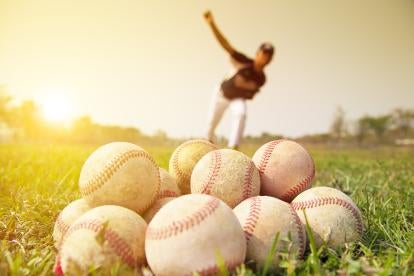The NCAA has voted to modify its existing rules dramatically to permit high school baseball players drafted in the Major League Baseball (MLB) amateur draft to hire agents to negotiate contracts with the Major League teams that drafted the players, without sacrificing college eligibility should they fail to successfully negotiate a professional contract.
The NCAA’s authorized use of an agent will not affect the high school player’s college eligibility. He will still be able to begin his career as a collegiate athlete in the event that the agent fails to negotiate an agreement with the team on the player’s behalf.
The new NCAA rule will begin immediately, applying to potential freshman baseball players in the Atlantic Coast Conference, the Big 12, the Big Ten, the Pac 12 and the Southeastern Conference. Other conferences are expected to follow the lead of the “Big Five” by adopting the same agent rules.
According to the new rules, in order to receive the benefit of an agent, the drafted high school player will be required to pay the agent his standard fee for services. However, a student athlete is not permitted to receive any other benefits from the agent beyond negotiating services. In addition,
if the student athlete decides to forego a professional baseball career and retain his college eligibility, he must sever all ties with the agent before formally enrolling and beginning his college academic and athletic experience.
While this NCAA rule modification provides clarity to high school student athletes and their families, the question still remains how college baseball players can receive adequate advice and counsel on a possible professional baseball contract while retaining their remaining college eligibility. Unfortunately, the current NCAA agent prohibition for college players will continue in its present form. Any college baseball player with remaining eligibility will not be able to take benefit from the new high school agent rule. They will still be prohibited from having the benefit of an agent and must rely upon the current “advisor” system.
The NCAA allows student-athletes to hire an “advisor” to receive the advice and counsel of a lawyer concerning a professional sports contract. The NCAA has said receiving such advice is not considered to be entering into an agent contract. Unfortunately, the effectiveness of the “advisor” has been curtailed by NCAA Bylaw 12.3.2.1 which states, “a lawyer may not be present during discussions of a contract offer with a professional organization or have direct contact (i.e., in person, by telephone or by mail) with a professional sports organization on behalf of the individual. A lawyer’s presence during such discussions is considered representation by an agent and a violation of NCAA bylaws.
These confusing and inconsistent rules have resulted in several noteworthy litigations involving the NCAA in recent years. Perhaps the most well-known matter involved Oklahoma State University pitcher Andy Oliver. Oliver was drafted by the Minnesota Twins after his senior year in high school but decided to forego a professional career to attend Oklahoma State University. Near the end of his sophomore season, the NCAA ruled Oliver to be indefinitely ineligible to participate as a college athlete based upon his violation of the NCAA’s no-agent rule because of assistance he received from his representatives while considering the Twins offer.
Oliver sued the NCAA in Ohio, seeking an injunction to restore his collegiate eligibility, in addition to seeking compensatory and punitive damages. The court granted Oliver a temporary restraining order and immediately reinstated his eligibility. In addition, the Court held that the NCAA was prohibited from dictating to an attorney where, what, how or when he can and should represent his client. The ruling essentially abolished Bylaw 12.3.2.1. Unfortunately, the impact of the court’s order was only temporary as it was vacated when the NCAA decided to pay Oliver $750,000 to settle his claims and effectively preserve their limitation on the athlete’s ability to secure proper and adequate counsel.
As Oliver’s attorney, Rick Johnson, asserted at the time of the settlement, “…the NCAA can continue to act with its typical arrogance and try to continue to deny student-athletes the right to counsel…no court is going to allow the NCAA to regulate lawyers or prohibit nonmember student-athletes from retaining counsel.”
While the NCAA has finally addressed the agent issue for high school baseball players, its failure to address the same issue on the collegiate level will only perpetuate the decades-long charade of requiring certified agents to work as “advisors” for their clients in order to appear to be in NCAA compliance. The NCAA has created an uneven playing field. All drafted baseball players should be able to receive the same level of advice and counsel as they consider the option of becoming a professional baseball player.




 i
i


